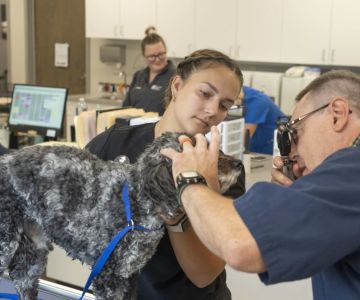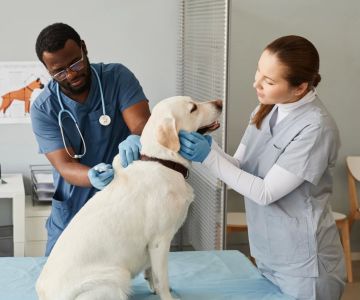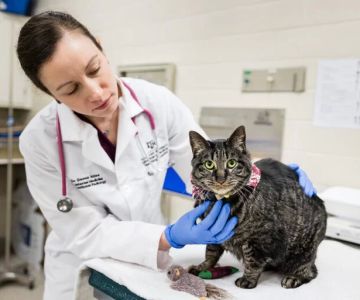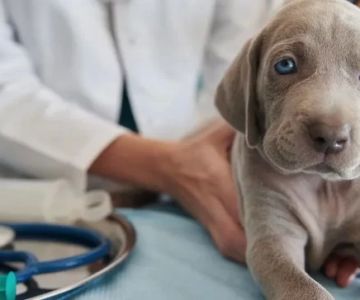- 1-What-degree-is-needed-to-become-a-veterinarian
- 2-Vet-school-education-structure-and-requirements
- 3-Real-life-experience-and-case-studies-in-veterinary-training
- 4-Career-path-options-after-obtaining-a-veterinary-degree
- 5-How-to-choose-the-right-veterinary-program
- 6-Final-thoughts-on-pursuing-a-veterinary-degree-and-career
Understanding What Degree Is Needed to Become a Veterinarian
Becoming a veterinarian is a rewarding career that combines science, compassion, and practical skills. The fundamental question often asked is, “what degree do you have to be a veterinarian?”. To practice as a licensed vet, you must earn a Doctor of Veterinary Medicine (DVM or VMD) degree, which is a professional doctoral degree awarded by accredited veterinary schools.
This degree goes beyond typical undergraduate education, requiring rigorous training in animal biology, medicine, surgery, and public health. While a bachelor’s degree is not strictly mandatory before entering vet school in some countries, most applicants hold an undergraduate degree in related fields such as biology, animal science, or chemistry to meet admission prerequisites.
In the U.S. and many Western countries, completing the DVM is mandatory to be eligible for licensing exams, which allow you to legally practice veterinary medicine. The journey from a bachelor’s degree to becoming a licensed veterinarian usually takes about eight years in total—four years of undergraduate studies followed by four years of veterinary school.
The Structure and Requirements of Veterinary School Education
Veterinary school education is highly structured and intensive. During the first two years, students focus on foundational sciences like anatomy, physiology, microbiology, and pharmacology, with courses designed to build a deep understanding of animal health and disease mechanisms.
The final two years generally involve clinical training, where students gain hands-on experience in diagnosing and treating animals. This phase often includes rotations in various specialties such as surgery, internal medicine, emergency care, and dentistry, exposing students to both companion animals and livestock.
Admission to vet schools is competitive. Schools require applicants to have completed specific science courses with strong grades, as well as relevant experience working with animals, whether through volunteering, internships, or employment. Some schools also require the Graduate Record Examination (GRE) or similar tests.
Real-Life Experience and Case Studies in Veterinary Training
Practical experience is a cornerstone of veterinary education. For instance, during my internship at a busy animal hospital, I witnessed the critical importance of rapid diagnosis when a dog was brought in with acute paralysis. The training from vet school prepared me to assist in emergency care, and the case reinforced how vital a thorough veterinary education is.
Another memorable story comes from a veterinary student who successfully helped diagnose a rare infectious disease in cattle during her clinical rotation. Her ability to apply classroom knowledge to a real-world problem saved an entire herd, illustrating the life-changing impact of a veterinarian’s expertise.
These stories underscore that earning the necessary degree isn’t just about academic achievement but about gaining the skills to make a real difference in animal health and welfare.
Exploring Career Paths After Obtaining a Veterinary Degree
After earning a DVM, career options are diverse. Many vets work in private practice caring for pets, while others specialize in areas like surgery, dermatology, or exotic animal care. Opportunities also exist in research, public health, pharmaceuticals, and wildlife conservation.
Some veterinarians pursue further specialization through residencies and certifications, which require additional years of study but open doors to advanced roles and higher salaries. For example, becoming a board-certified veterinary surgeon demands several years of focused training beyond the DVM degree.
Understanding the full spectrum of career pathways helps prospective students tailor their education and professional development according to their passions and goals.
Choosing the Right Veterinary Program: What to Consider
Selecting the right veterinary school is crucial. Factors such as accreditation, faculty expertise, clinical facilities, and research opportunities can significantly affect the quality of your education and career readiness.
For example, programs with strong connections to animal hospitals or wildlife centers offer richer clinical experiences. Others may emphasize research or public health, which could align better with certain career interests.
Also consider location, tuition costs, and available financial aid. Visiting campuses and talking to current students or alumni can provide valuable insights into the culture and expectations of the program.
Final Thoughts on Pursuing a Veterinary Degree and Career
Understanding what degree do you have to be a veterinarian is the essential first step toward a fulfilling career dedicated to animal health. The Doctor of Veterinary Medicine degree is demanding but equips you with unparalleled knowledge and skills.
If you are passionate about animals and science, investing in a veterinary degree can open doors to a wide range of meaningful and financially rewarding careers. To maximize your success, carefully choose your program and seek out practical experiences early.
Ready to take the next step? Explore reputable veterinary programs and consider enrolling in a preparatory course that helps strengthen your science background and application profile. By committing to the right educational path, you’re one step closer to making a lasting impact in the veterinary field.









